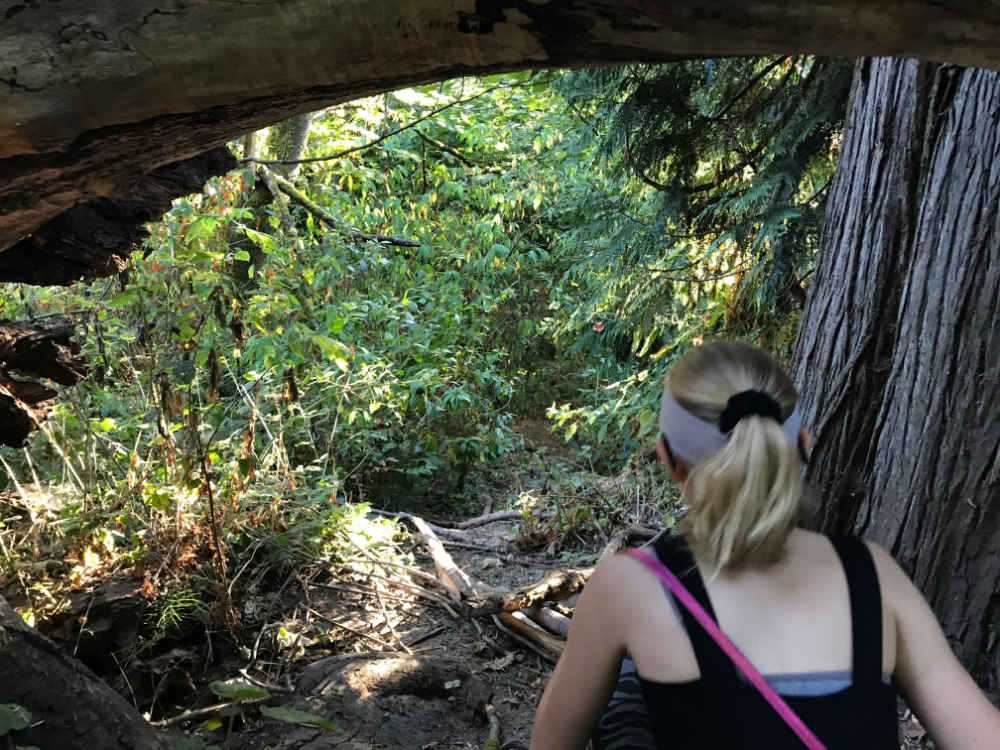The Inverted Career Path for Developers
Sometimes, the path that will lead you to success doesn’t look very inviting. Other people don’t choose that path, and they’ll look at you crazy when you tell them you’re trying it.
0 to $100K💰 in 1 Step
To be a web developer, you…
- take out loans and go to a university
- get an internship for some real-world experience.
- search and search for a junior role until someone agrees to hire you.
- work as a junior for a few years until you’re able to start climbing the ladder, one rung at a time.
Unless you don’t. 😉
My first web development job was a senior role that paid $100k a year. You might say this is low for a senior position. That is true… if you’re in a coastal city with a high cost of living. I was not. If you’re in Knoxville, Tennessee where the average developer salary is $70,000 a year, it’s significant.
So, how do you go from 0 to $100k on your first job with no professional experience? You don’t. What you can do is flip the entire process of starting your web development career on its head. Get your professional experience before you get the job. You might like this method so much, you may find you don’t even need a traditional “job” at all.
The Inverted 🙃 Career Path
I preach the gospel of a new path — one I stumbled upon as I started my web development career. In the Inverted Career Path, you start as a professional web developer and look for a job only if you want to. My path is non-linear and looks something like this:
- Learn HTML and CSS. While you’re doing that…
- Start a pet project and build whatever part of it you can with what you now know
- Find freelance jobs that let you practice your new skills
- Learn basic front-end Javascript. While you’re doing that…
- Build whatever part of your pet project you can with your new skills
- Find freelance jobs that let you practice your new skill
Now, you have the basics of front-end development. From now on, you’re going to let your freelance gigs and your pet project drive what you learn next. Choose a direction based on the needs in front of you. This ensures you’re always learning something that is meaningful to you. It’s either making you more money or helping you complete your pet project.
Keep this cycle going. Learn until you can build the next piece of your project or take on the next tier of freelance work. Work until you hit another barrier. Rinse. Repeat.
At this point, you don’t have to look for a job because you’re already getting paid for your freelance work. If you decide you need the structure and stability of a permanent position, you can get that much more easily on the back of your proven freelance track record. You’re no longer some random stranger who wondered in out of the nearest coding bootcamp looking for a job. You’re already a proven professional web developer. (Note: The additional stability of a permanent position is an illusion.)
Besides this, you’re actually earning money as you continue to learn. Instead of paying to learn, you’re getting paid to learn.
A Pain-Free 😌 Hiring Process
By becoming a professional developer before you look for a job, you may not have to look at all. This is what happened in my story. My first employer as a web developer was initially a client in my freelance web development practice.
I worked with them for almost two years as a freelancer. When they needed the permanent help of someone to do more of what I was already doing, they came to me. Their alternative was to waste thousands of dollars finding a suitable candidate. They would hope all the barriers they built into the hiring process had the desired effect. (Even the best hiring process in the world can’t ensure you don’t end up with a dud. If you do, you start back at zero.)
Offering me the job was a no-brainer. I allowed them to short-circuit that whole painful process. All the uncertainty of hiring a candidate just because of their whiteboard code and charm was gone. They knew I could do the work I was doing because I was already doing it.
It was great for me too. Everyone hates whiteboard interviews and take-home coding projects (i.e. unpaid work). I didn’t have to do any of these things. My coding project was the two years of work I had already done for them. They won because they got actual useful code instead of a throwaway project. I won because I effectively got paid for the coding interview.
Inverting the Power 🔋 Dynamic
The hiring process was simple and low-risk on both sides. They made me an offer. We negotiated a bit. We met in the middle. I accepted the offer and kept doing what I was already doing but for more hours each week.
By removing the risk and costs of hiring and on-boarding new talent, I was in a much better bargaining position. This allowed me to ask for a salary I could never have received in a million years as an unknown quantity wandering in off the street to beg for a job.
